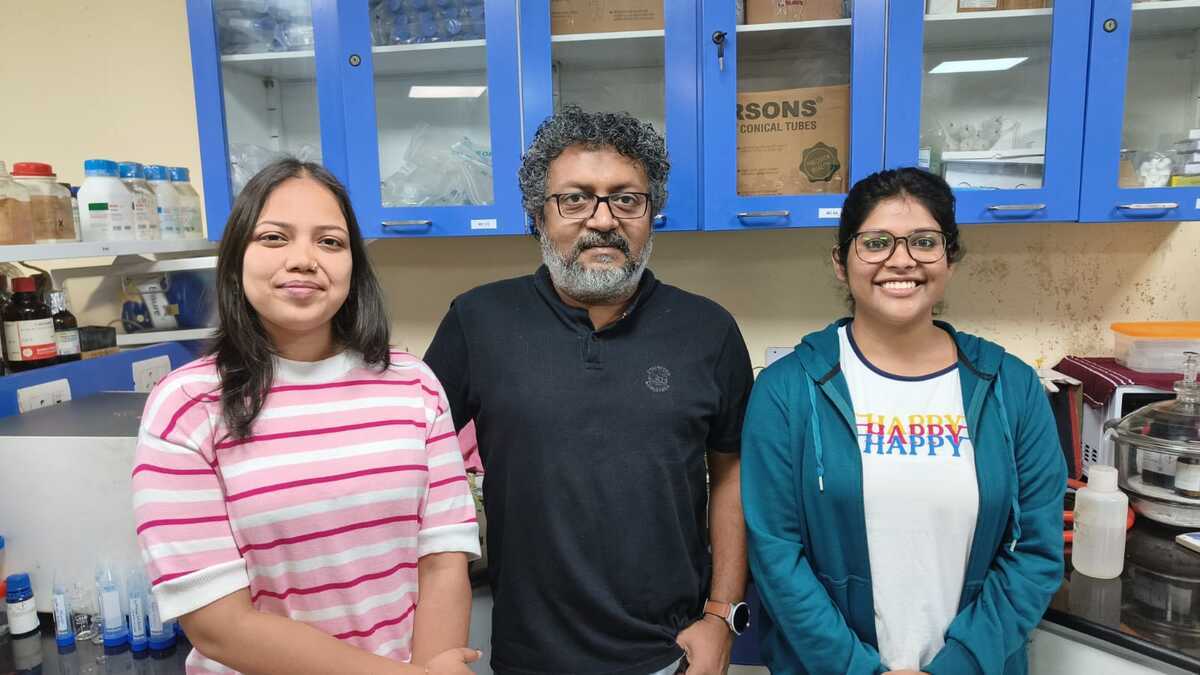IIT Guwahati develops injectable hydrogel for breast cancer treatment
Suviral Shukla | January 2, 2025 | 03:32 PM IST | 2 mins read
IIT Guwahati, Bose Institute Kolkata design therapy which delivers anti-cancer drugs directly to tumour sites, reduces side effects of cancer treatments.

NEW DELHI: The Indian Institute of Technology (IIT) Guwahati, in collaboration with Bose Institute Kolkata, has developed injectable hydrogel for localised cancer treatment. In this type of therapy, anti-cancer drugs are delivered directly to tumour sites, potentially reducing the side effects typically associated with current breast cancer treatments.
The findings of the hydrogel research have been published in the journal Materials Horizons. The paper is co-authored by Debapratim Das, IIT Guwahati professor, along with research scholars Tanushree Das and Ritvika Kushwaha. Kuldip Jana, Satyajit Halder, and Anup Kumar Misra from Bose Institute Kolkata were also part of the research, the institute said.
Expressing his views on the discovery, Debapratim Das said: “This work exemplifies how scientific innovation can directly address the pressing needs of cancer treatment. Hydrogel’s unique properties allow it to work in harmony with the biological environment, offering precision where it is needed most.”
Also read IIT BHU director Amit Patra takes over additional charge of IIT Kharagpur
IIT Guwahati: Hydrogel therapy for cancer
The institute further explains that in the modern treatment, such as chemotherapy and surgical interventions, often have severe limitations and surgical removal of tumours is also not feasible, especially for internal organs.
The IIT Guwahati and Bose Institute Kolkata collaboration has addressed these challenges by designing a hydrogel that delivers drugs to the tumour areas in the body, the institute added.
“Hydrogels are water-based, three-dimensional polymer networks capable of absorbing and retaining fluids. Their unique structure mimics living tissues, making them suitable for biomedical applications. This newly developed hydrogel acts as a stable reservoir for anti-cancer drugs and releases them in a controlled manner, responding to specific conditions in the tumor microenvironment,” the institute added.
The newly developed hydrogel is made of ultra-short peptides – biocompatible and biodegradable building blocks of proteins, designed to remain insoluble in biological fluids, it said.
It responds to increased “glutathione (GSH) levels, a molecule abundant in tumour cells” and triggers a controlled drug release directly into the tumour. Therefore, decreasing its interaction with healthy tissues and minimising side effects, the institute explained.
The researchers are undergoing studies to find out the maximum amount of reduction in the size of the tumour by a single dose. Furthermore, they are also looking into other types of tumours and after the completion of all the studies, the findings will be applied for clinical trials, the official statement from the institute said.
Follow us for the latest education news on colleges and universities, admission, courses, exams, research, education policies, study abroad and more..
To get in touch, write to us at news@careers360.com.